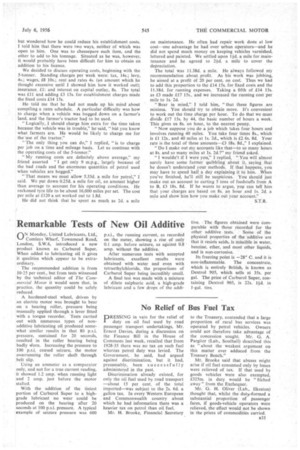No Relief of Bus Fuel Tax
Page 79

If you've noticed an error in this article please click here to report it so we can fix it.
DRESSING in vain for the relief of I duty on oil fuel used by road passenger transport undertakings, Mr. Ernest Davies, during a discussion on the Finance Bill in the House of Commons last week, recalled that from 1928-35 there was no tax on such fuel whereas petrol duty was levied. The Government, he said, had argued against discrimination, but it had, presumably, been successfully administered in the past.
Discrimination already existed, for only the oil fuel used by road transport -about 15 per cent, of the total imported-was subject to the 2s. 6d. a gallon tax. In every Western European and Commonwealth country about which he had information there was a heavier tax on petrol than oil fuel.
Mr. H. Brooke. Financial Secretary to the Treasury, contended that a large proportion of rural bus services was operated by petrol vehicles. Owners could not therefore take advantage of the concession sought. Mr. G. A. Pargiter (Lab.. Southall) described this as "about the weakest argument on this matter ever adduced from the Treasury Bench."
Mr. Brooke said that abuses might arise if oil fuel consumed only by buses were relieved of tax. If that used by goods vehicles were also exempted, £325m. in duty would be "filched away" from the Exchequer.
Mr. G. H. Oliver (Lab., Ilkeston) thought that, whilst the duty-formed a substantial proportion of passenger fares, if goods-vehicle operators were relieved, the effect would not be shown in the prices of commodities carried.
























































































































